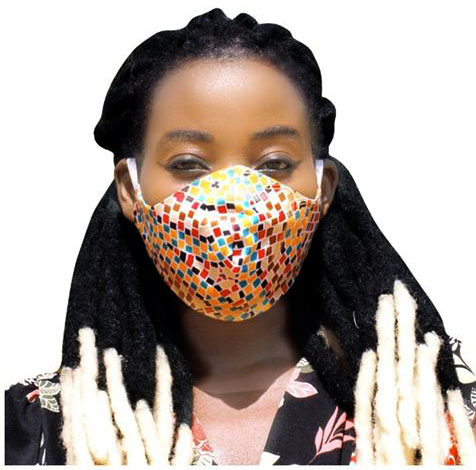As from Monday, 27 April, the wearing of face masks on public transport – trains, buses, trams, subways etc. – will be compulsory in all the 16 federal states in Germany. In fact, the regulation is already in effect in Saxony (since 20 April), Saxony-Anhalt (23 April) and Thuringia (24 April) and it will enter into force in Schleswig-Holstein on 29 April.
Moreover, the use of mouth-and-nose covering will also be compulsory while shopping in all the states. Children under the age of six are exempted from wearing a mask.
—–
What is a face mask?
A face mask does not mean a medical mask, such as a surgical mask or N95 respirator, which are expensive, scarce and should therefore be reserved for health workers.
Rather, it can be any sort of mouth and nose covering, including scarfs and self-sewn coverings, which the Robert Koch Institute, Germany’s centre for disease control and prevention, has said can help prevent a person from spreading coronavirus to others.
These homemade masks should cover the nose and mouth and be worn whenever you’re in a community setting, like on public transport, in stores, banks or pharmacies.

The idea is that a simple cloth covering could prevent asymptomatic people (infected people who are yet to show any symptoms and who may not even know that they’re infected) from spreading the disease in situations where it’s hard to maintain social distance.
Important! A face mask does not prevent the wearer from being infected with the virus; face masks are intended to prevent other people from getting the virus from wearers. So, if everybody wears a face mask, we will mutually protect each other.
So, wearing a face mask alone should not give you a false sense of protection! Other precautions should continue to be adhered to, say experts.
Using a face mask
For masks to be effective, they must be worn properly, say experts. Face coverings should cover your whole nose and mouth, and extend underneath your chin, according to the US Centre for Disease Control. You should be able to breathe normally, but the sides of the mask should fit close to your face.
The World Health Organisation suggests that people first clean their hands before putting a mask on and check that there are no holes or tears in the fabric.
And don’t touch the outside of the mask or cloth which could be contaminated. A recent laboratory study found that the coronavirus could survive on a face mask for up to seven days. That means, if you must take off your mask to take a quick breath or for an itch, it’s important to practice good hand hygiene after touching the face covering.

Currently, there are no strict guidelines about washing and sanitising cloth face coverings and masks. Generally, machine-washing your mask is enough to disinfect your cloth face covering. Masks can also be washed in the sink in warm water and with detergent.
Experts recommend masks should be washed after each time you wear them.
Keep social distancing
Wearing a face covering is just one additional step that you can take to stop the spread of the new coronavirus, but it’s not a replacement for the other important prevention measures, such as washing your hands and social distancing, say experts.
Sola Jolaoso & Vivian Asamoah
Lockdown measures still in force until 3 May and beyond:
- Only retailers with trading floor not larger than 800 square meters are allowed to open
- Social distancing rules require people to keep a minimum distance of 1.5 m from each other in the public
- Schools will slowly re-open on 4 May, with pupils in their last years of primary and secondary school having the priority. Schools that re-open must have a strict hygiene plan in place.
- Hair salons can resume business on 4 May if strict protective measures, among which is that both customer and hairdresser/barber wear face masks, are observed.
- Individuals may only meet with one person who is not a member their family or household in the public at a time
- Large events, such as sports and concerts, will remain banned until 31 August.
- Bars, restaurants, day care centres, theatres, and cinemas are closed until further notice.
- Religious gatherings are also cancelled for the foreseeable future.
- Strict controls at Germany’s borders will stay in place at least until 3 May.
 THE AFRICAN COURIER. Reporting Africa and its Diaspora! The African Courier is an international magazine published in Germany to report on Africa and the Diaspora African experience. The first issue of the bimonthly magazine appeared on the newsstands on 15 February 1998. The African Courier is a communication forum for European-African political, economic and cultural exchanges, and a voice for Africa in Europe.
THE AFRICAN COURIER. Reporting Africa and its Diaspora! The African Courier is an international magazine published in Germany to report on Africa and the Diaspora African experience. The first issue of the bimonthly magazine appeared on the newsstands on 15 February 1998. The African Courier is a communication forum for European-African political, economic and cultural exchanges, and a voice for Africa in Europe.

































